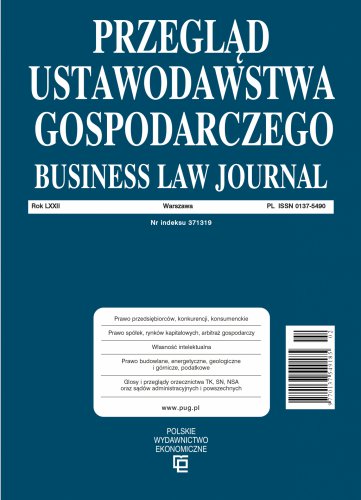Business Law Journal 03/2024
ISSN: 0137-5490
Pages: 44
Publication date: 2024
Place publication: Warszawa
Binding: paperback
Format: A4
Publication date: 2024
Place publication: Warszawa
Binding: paperback
Format: A4
DOI: 10.33226/0137-5490.2024.3.1
JEL: K49
DOI: 10.33226/0137-5490.2024.3.2
JEL: K29, L21, L32
DOI: 10.33226/0137-5490.2024.3.3
JEL: K2
DOI: 10.33226/0137-5490.2024.3.4
JEL: K12
DOI: 10.33226/0137-5490.2024.3.5
JEL: K10, K21, K23
DOI: 10.33226/0137-5490.2024.3.6
JEL: K13
| Odbiór osobisty | 0 € |
| Inpost Paczkomaty | 4 € |
| Kurier Inpost | 4 € |
| Kurier FedEX | 4 € |
| Free delivery in Reader's Club | from 47 € |

